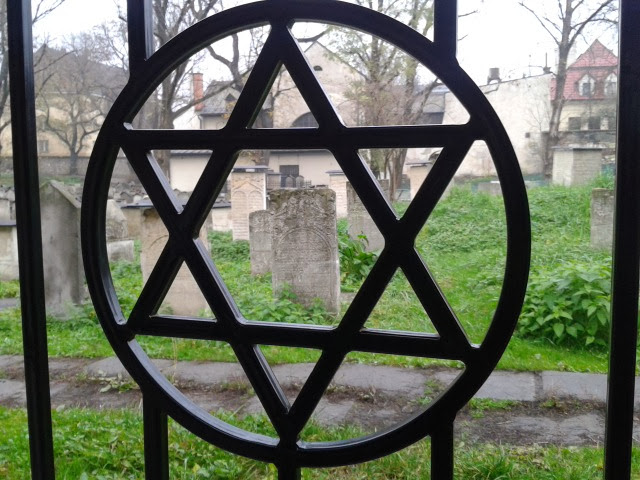Poland: where everything is dirt cheap and ask the stereotypes are true. Perogies, borsch, vodka, sausages, cold weather, and very few English speakers. The buildings in Krakow are gorgeous, lots of old, towering stone structures line the roads of the city. The Wawel Castle sits at the top of the hill, where you can see the whole skyline view over the river and the old Jewish area.
In contrast to the southern European cities, such as Madrid and Lisbon where dinner isn't served until 9pm or so, Krakow is on a much earlier schedule. Most tourist sites close by 4pm. I was told that many office jobs start at 7am, but must tourist sites aren't open until 10am. How strange.
The city was established in 1257, with a barbican, moat, city walls all the way around, and the castle on the hill. Shortly after Krakow was established, the area now called Poland united with Lithuania, which - at that time - also included Bulgaria, Ukraine and other Eastern European countries. The union lasted for 500 years! The countries communicated in Latin, which was the language of the educated and of the church. Krakow is home to hundreds of churches and synagogues. Every few steps, you are in front of another church again.
Average income is €600 a month, which is incredibly low. They don't use the euro and cents but rather zlotys and grotzys. Most everything is laughably cheap. For example, a bowl of stew costs about $1.50, and a full plate of homemade perogies is about $2. Alcoholic drinks are under $2, and a bed in a hostel is $7 a night, including breakfast and all. The cheap prices, especially for alcohol, are one of the major reasons that many bachelor (stag) parties go to Krakow to celebrate. I highly recommend Krakow if you're on a budget - you can buy whatever you want, and it's still half the price of anywhere else in Europe!
As with most city centers, the main market square is filled with pigeons. The Polish consider them rats with wings and blame them for spreading disease. Apparently the famous Polish bagels were originally for feeding the pigeons, and they still have that connotation in their minds, so locals don't actually eat them. Given the prevalence of the bagel stands, I was tempted to doubt this fact, until I learned that Krakow's population is only 1 million including students, but they have 9 million tourists visiting each year. I suppose the tourists keep them in business. You might as well go there yourself and have some :)
Borstch and perogies filled with cheese - cost $4 (£2.50)
The cathedral on Wawel Hill (in the castle)
The view from the top of Wawel Hill
The Jewish cemetery




No comments:
Post a Comment